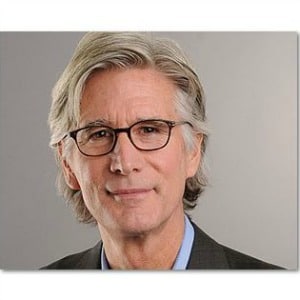
(By Bob McCurdy) If you read one article this week, read “Shokunin Kishitsu and the Five Elements of Mastery,” and if you watch one film, make it Jiro: Dreams of Sushi. It is available on Netflix and it is impossible to walk away uninspired. The commitment to excellence displayed by this chef in both the article and documentary is epic. You can read the article here.
Great performers embrace what is referred to as Shokunin Kishitsu (a craftsman’s spirit) as they master their profession. This “spirit” is clearly on display in both.
Jiro Ono, the movie’s protagonist, is described as a master of his “art” who sets the standard for self-discipline, skill enhancement, and continuous improvement.
If a sushi chef can approach his job with an artist’s mindset, why can’t we?
Discipline, a healthy dose of “constructive dissatisfaction” and a focus on constant improvement separate the “good” from the “great” in any profession, and it’s probably not a stretch to say many of us can “pick it up” in at least one of the abovementioned three areas as we seek to move both our careers and our clients’ businesses forward.
The five key elements of mastery discussed are:
- Majime: A true master is serious about the “art.” They always strive for the highest possible level of performance. The commitment to hard work is strong. The level of dedication is constant. Ono’s son in the movie says, “The techniques we use are no big secret. It’s just about making an effort and repeating the same thing every day.”
Takeaway: The fundamentals don’t change, what does change is our attention to, and execution of, them. Excellence is the gradual result of doing things a little better each day, there are no short cuts. Avoid the path of least resistance. Opt instead for the path of maximum advantage. Treat every day as if it is the first day on the job. Professional success and development comes from a continuous effort to narrow the gap between what we are currently accomplishing versus what we are capable of accomplishing.
- Kojoshin: Always aspire to improveyourself and your work. There is an old Zen adage that says once you think you have arrived, you have already begun your descent. One must never think they “have arrived.”
Takeaway: There is a purity about the pursuit of continuous professional development. Autograph everything in which we are involved with excellence. Embrace the fact that the more we learn about sales and marketing, the more we realize how much more there is to learn. Embrace the fact that the way to be professionally “safe,” is to never be professionally “secure.” Refine the capacity to find ways to get better every day, as if we ever stop, we’ll surely fall behind. Success, like failure, is temporary, so never assume you’ve arrived or failed.
Jiro Ono said it best: “I’ll continue to climb, trying to reach the top…but no one knows where the top is.”
- Seiketsuka: One cannot prepare and perform well if the environment is cluttered.
Takeaway: This holds true for both our work environment and minds. Clarity of purpose and minimizing all extraneous distractions facilitate laser-like focus so necessary for peak performance. Distractions impede. Focus attention on the present, and dismiss any distractions that come our way.
- Ganko: Impatience.
Takeaway: Constructive dissatisfaction. The recognition that each day’s 1,440 minutes can’t be refunded. Peak performers continually ask themselves if what they are currently doing is going to get them to where they want to go. A sense of urgency and a bias toward action always wins. Things come to those who wait, but only those things that have been left behind by those who hustled.
- Jyonetsu: Once you decide on your occupation, you must immerse yourself in your work. You have to fall in love with your work. You must dedicate your career to mastering your skill.
Takeaway: Most think commitment is a consequence of passion. It’s the other way around. Passion is a product of commitment. If we love what we do, we will never have to work a day in our lives. No passion, no art. No art, no greatness.
The final few lines from the film say it all:
Always look ahead and above yourself. Always try to improve. Always strive to elevate your craft.
Reminds me of a Pablo Casals quote:
When the Spanish cellist was in the final years of his life, a reporter asked; “Mr. Casals, you are ninety-five years and the greatest cellist that ever lived. Why do you still practice six hours a day?”
Casals’s answer: “Because I think I’m making progress!”
If these fellas can elevate the preparation of raw fish and the cello to an “art,” we certainly attempt to do the same in sales and marketing.
Bob McCurdy is Vice President of Sales for the Beasley Media Group and can be reached at [email protected]







